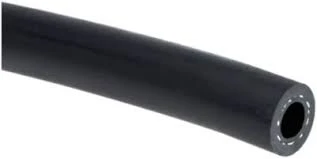High-Performance Rubber Fuel Hoses for Efficient Engine Fuel Delivery Systems
des . 24, 2024 17:15 Back to list
High-Performance Rubber Fuel Hoses for Efficient Engine Fuel Delivery Systems
Understanding Rubber Fuel Hoses Essential Components for Automotive Performance
Rubber fuel hoses play a critical role in the functionality and performance of automotive systems. These hoses are designed to transport fuel from the tank to the engine, ensuring efficient operation of the vehicle. Understanding the qualities, applications, and maintenance of rubber fuel hoses is vital for automotive enthusiasts, mechanics, and everyday drivers alike.
The Composition of Rubber Fuel Hoses
Rubber fuel hoses are typically made from synthetic rubber materials, such as nitrile rubber (NBR) or fluoroelastomers. These materials are chosen for their excellent resistance to fuel and oil, as well as their ability to withstand various temperatures. Nitrile rubber, in particular, is highly resistant to the degradation caused by petroleum-based products, making it a popular choice for fuel applications.
The inner lining of a fuel hose is where the fuel flows, while the outer layer protects against abrasion, heat, and environmental factors. Some rubber fuel hoses are reinforced with braided fabrics or steel wires to enhance their structural integrity and prevent kinking. This multi-layer design is crucial for maintaining consistent fuel flow and ensuring longevity under pressure.
Applications of Rubber Fuel Hoses
Rubber fuel hoses are commonly found in various applications beyond traditional vehicles. They are essential components in motorcycles, boats, and small engines, reflecting their versatility. In automotive applications, rubber fuel hoses connect the fuel tank to the engine, allowing efficient fuel delivery to combustion chambers. They can also be found in fuel injection systems, carburetors, and other components where fuel transport is necessary.
In addition to gasoline and diesel applications, specialized rubber fuel hoses are available for alternative fuels, including ethanol and biodiesel. These hoses are designed to withstand the specific chemical properties of these fuels, promoting safety and reliability in alternative fuel systems.
The Importance of Proper Maintenance
rubber fuel hose

Regular maintenance of rubber fuel hoses is crucial for ensuring the safety and efficiency of any vehicle. Over time, factors such as heat, pressure, and exposure to fuel can compromise the integrity of the hoses. Signs of wear can include cracking, brittleness, or swelling. Drivers should regularly inspect their fuel hoses for these telltale signs of deterioration and replace them as needed.
In addition to visual inspections, it's essential to consider the age of the rubber fuel hoses. Even if they appear intact, rubber can degrade over time. Most manufacturers recommend replacing fuel hoses every five to seven years, regardless of their appearance. This proactive approach helps to prevent leaks, which can pose serious safety hazards, including fire risks.
Choosing the Right Rubber Fuel Hose
When selecting a rubber fuel hose, it's important to consider factors such as the type of fuel, operating temperature, and pressure ratings. Not all rubber hoses are created equal; different materials and construction techniques cater to specific applications and performance requirements.
For example, a fuel hose used in a high-performance racing car will differ significantly from that in a standard family vehicle. High-performance applications require hoses that can handle elevated temperatures and pressures, while everyday vehicles may prioritize durability and fuel efficiency.
Furthermore, users should also take into account the standard compliance of their chosen hoses. Many fuel hoses are certified to meet regulatory standards, such as SAE J30, which ensures their safety and reliability in automotive applications.
Conclusion
Rubber fuel hoses are essential components of automotive and fuel systems, playing a significant role in the safe and efficient delivery of fuel. Their construction, material properties, and the importance of regular maintenance cannot be overstated. Vehicle owners and operators should prioritize understanding these critical components, ensuring they choose the right hoses for their specific applications and conduct regular inspections to maintain their integrity. By doing so, they can enhance the performance and longevity of their vehicles while ensuring safety on the road.
Latest news
-
Durable Automotive Fuel Line: Car, Diesel & E85 Hoses
NewsAug.27,2025
-
Automotive Fuel Line & Hose Solutions | E85 & Diesel Ready
NewsAug.26,2025
-
Reliable Automotive Fuel Line | E85 & Diesel Compatible
NewsAug.25,2025
-
Durable Car Heater Hose | Quality Automotive Preheater Pipes
NewsAug.24,2025
-
Durable Air Brake Hose & Air Lines for Trucks | Safety Ensured
NewsAug.23,2025
-
Air Conditioning Charging Hose: Durable AC Recharge Kits
NewsAug.22,2025
